
Paul Frederic Simon is an American singer-songwriter known both for his solo work and his collaboration with Art Garfunkel. He and his school friend Garfunkel, whom he met in 1953, came to prominence in the 1960s as Simon & Garfunkel. Their blend of folk and rock, including hits such as "The Sound of Silence", "Mrs. Robinson", "America" and "The Boxer", served as a soundtrack to the counterculture movement. Their final album, Bridge Over Troubled Water (1970), is among the bestselling of all time.
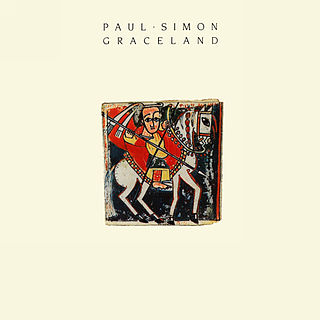
Graceland is the seventh solo studio album by the American singer-songwriter Paul Simon. It was produced by Simon, engineered by Roy Halee and released on August 25, 1986, by Warner Bros. Records. It features an eclectic mixture of genres, including pop, rock, a cappella, zydeco, and Zulu ethnic music of South Africa.

The Rhythm of the Saints is the eighth solo studio album by American singer-songwriter Paul Simon, released on October 16, 1990, by Warner Bros. In much the same way that Simon's previous album, Graceland, released in 1986, drew upon South African music, this album was inspired by Brazilian musical traditions. Like its predecessor, the album was commercially successful and received mostly favorable reviews from critics.

"Stand by Me" is a song originally performed in 1961 by American singer-songwriter Ben E. King and written by him, along with Jerry Leiber and Mike Stoller, who together used the pseudonym Elmo Glick. According to King, the title is derived from, and was inspired by, a spiritual written by Sam Cooke and J. W. Alexander called "Stand by Me Father", recorded by the Soul Stirrers with Johnnie Taylor singing lead.
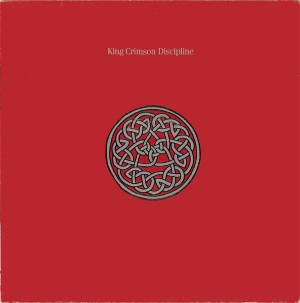
Discipline is the eighth studio album by English progressive rock band King Crimson, released on 22 September 1981 by E.G. Records in the United Kingdom and by Warner Bros. Records in the United States.

"Dress You Up" is a song by American singer Madonna from her second studio album, Like a Virgin (1984). It was released as the album's final single on July 24, 1985, by Sire Records. Written by Andrea LaRusso and Peggy Stanziale, and produced by Nile Rodgers, who also played guitar on the track, it was the final song to be added to the album. Rodgers had asked the writers to compose something similar to the work of his band Chic but, due to LaRusso and Stanziale being busy with other projects, the composition took time. When the lyrics were submitted, the producer initially rejected them, as he felt there was no time to compose a melody; Madonna, however, liked the lyrics and convinced him to include the song on Like a Virgin. Musically, "Dress You Up" is a dance-pop song whose lyrics are an extended metaphor for fashion and lust, comparing dressing up with passion.
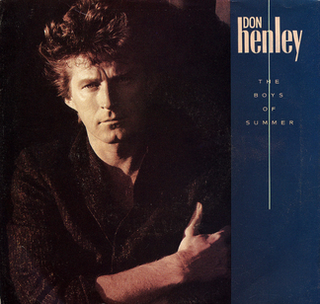
"The Boys of Summer" is a song by the American musician Don Henley. The lyrics were written by Henley and the music was composed by Mike Campbell of Tom Petty and the Heartbreakers. It was released on October 26, 1984, as the lead single from Henley's album Building the Perfect Beast. It reached number five on the Billboard Hot 100 chart in the US, number one on the Billboard Top Rock Tracks chart, and number 12 in the UK Singles Chart.

"Genius of Love" is a 1981 hit song by American new wave band Tom Tom Club from their 1981 eponymous debut studio album. The song reached number one on the Billboard Disco Top 80 chart, and was performed by Talking Heads in the 1984 concert film Stop Making Sense.

"Hungry Like the Wolf" is a song by English new wave band Duran Duran. Written by the band members, the song was produced by Colin Thurston for the group's second studio album, Rio (1982). The song was released on 4 May 1982 as the band's fifth single in the United Kingdom, and 8 June 1982 in the United States. It reached No. 5 on the UK Singles Chart, and received a platinum certification from the British Phonographic Industry (BPI).

"You Can Call Me Al" is a song by American singer-songwriter Paul Simon. It was the lead single from his seventh studio album, Graceland (1986), released on Warner Bros. Records. Written by Simon, its lyrics follow an individual seemingly experiencing a midlife crisis. Its lyrics were partially inspired by Simon's trip to South Africa and experience with its culture. Released in July 1986, "You Can Call Me Al" became one of Simon's biggest solo hits, reaching the top five in seven countries.

The Paul Simon Anthology is the fourth greatest hits compilation album by American singer-songwriter Paul Simon, which was released in 1993. It featured one previously unreleased track, "Thelma".
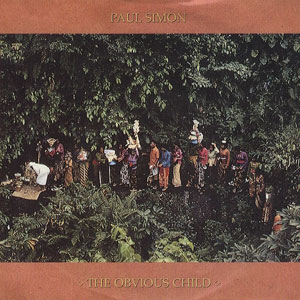
"The Obvious Child" is a song recorded by American singer-songwriter Paul Simon. It was the lead single from his eighth studio album, The Rhythm of the Saints (1990), released by Warner Bros. Records. Written by Simon, its lyrics explore mortality and aging. The song is accompanied by a performance from Brazilian drumming collective Olodum in a live recording.

"Graceland" is the title song of the album Graceland, released in 1986 by Paul Simon. The song features vocals by The Everly Brothers. The lyrics follow the singer's thoughts during a road trip to Graceland after the failure of his marriage. Actress and author Carrie Fisher, Simon's ex-wife, said that the song referred in part to their relationship.

"Sowing the Seeds of Love" is a song by English pop rock band Tears for Fears. It was released in August 1989 as the first single from their third studio album, The Seeds of Love (1989).

"Don't Get Me Wrong" is a song by British-American alternative rock group the Pretenders. It was the first single released from the group's fourth studio album, Get Close (1986). It was also included on the band's The Singles album, released in 1987. Frontwoman Chrissie Hynde said she was inspired to write the song for her friend John McEnroe.

"Beat It" is a song by American singer-songwriter Michael Jackson from his sixth studio album, Thriller (1982). It was written and composed by Jackson and produced by Quincy Jones and co-produced by Jackson. Jones encouraged Jackson to include a rock song on the album. Jackson later said: "I wanted to write a song, the type of song that I would buy if I were to buy a rock song... and I wanted the children to really enjoy it—the school children as well as the college students." It includes a guitar solo by Eddie Van Halen.

Paul Simon is an American singer-songwriter who is possibly best known as a member of the folk-duo Simon & Garfunkel with Art Garfunkel. He has released studio albums, live albums, compilation albums and singles. His music career has spanned over 60 years. He started recording music in the 1950s and his most recent album, Seven Psalms, was released on May 19, 2023.

"Late in the Evening" is a song by American singer-songwriter Paul Simon. It was the lead single from his fifth studio album, One-Trick Pony (1980), released on Warner Bros. Records.
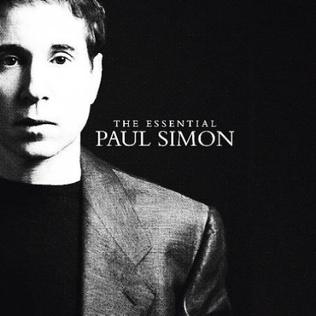
The Essential Paul Simon is a compilation album of Paul Simon's songs from the years 1971-2006 and released in 2007. An edition exists with a DVD featuring performances from The Dick Cavett Show and Saturday Night Live. It was re-released in 2010 in Australia through Sony BMG a part of The Essential series.

"Under African Skies" is a song by the American singer-songwriter Paul Simon. It was the fifth and final single from his seventh studio album, Graceland (1986), released on Warner Bros. Records. The song features guest vocals from singer Linda Ronstadt.




















